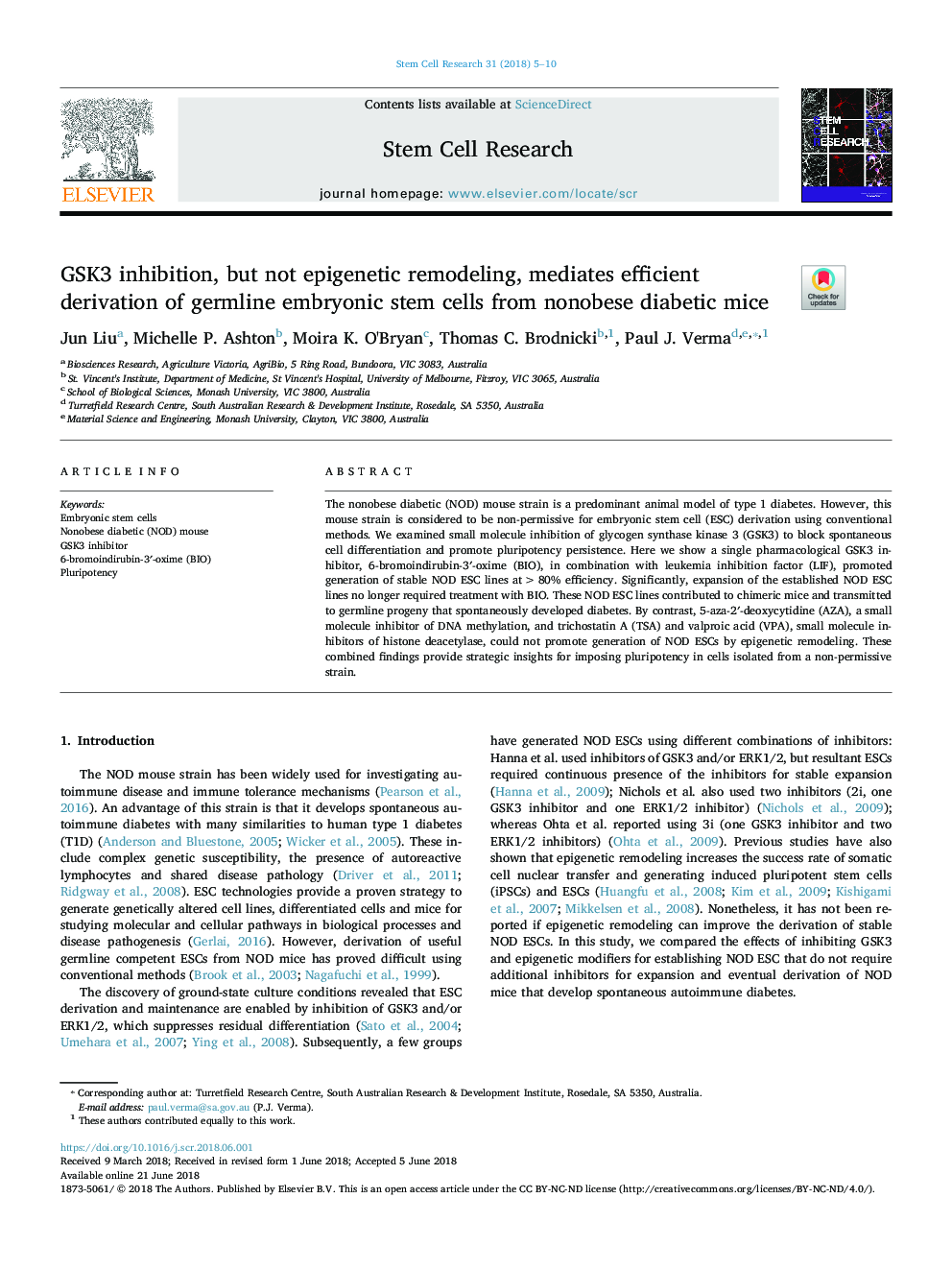| کد مقاله | کد نشریه | سال انتشار | مقاله انگلیسی | نسخه تمام متن |
|---|---|---|---|---|
| 8424791 | 1546022 | 2018 | 6 صفحه PDF | دانلود رایگان |
عنوان انگلیسی مقاله ISI
GSK3 inhibition, but not epigenetic remodeling, mediates efficient derivation of germline embryonic stem cells from nonobese diabetic mice
دانلود مقاله + سفارش ترجمه
دانلود مقاله ISI انگلیسی
رایگان برای ایرانیان
موضوعات مرتبط
علوم زیستی و بیوفناوری
بیوشیمی، ژنتیک و زیست شناسی مولکولی
بیوتکنولوژی یا زیستفناوری
پیش نمایش صفحه اول مقاله

چکیده انگلیسی
The nonobese diabetic (NOD) mouse strain is a predominant animal model of type 1 diabetes. However, this mouse strain is considered to be non-permissive for embryonic stem cell (ESC) derivation using conventional methods. We examined small molecule inhibition of glycogen synthase kinase 3 (GSK3) to block spontaneous cell differentiation and promote pluripotency persistence. Here we show a single pharmacological GSK3 inhibitor, 6-bromoindirubin-3â²-oxime (BIO), in combination with leukemia inhibition factor (LIF), promoted generation of stable NOD ESC lines at >80% efficiency. Significantly, expansion of the established NOD ESC lines no longer required treatment with BIO. These NOD ESC lines contributed to chimeric mice and transmitted to germline progeny that spontaneously developed diabetes. By contrast, 5-aza-2â²-deoxycytidine (AZA), a small molecule inhibitor of DNA methylation, and trichostatin A (TSA) and valproic acid (VPA), small molecule inhibitors of histone deacetylase, could not promote generation of NOD ESCs by epigenetic remodeling. These combined findings provide strategic insights for imposing pluripotency in cells isolated from a non-permissive strain.
ناشر
Database: Elsevier - ScienceDirect (ساینس دایرکت)
Journal: Stem Cell Research - Volume 31, August 2018, Pages 5-10
Journal: Stem Cell Research - Volume 31, August 2018, Pages 5-10
نویسندگان
Jun Liu, Michelle P. Ashton, Moira K. O'Bryan, Thomas C. Brodnicki, Paul J. Verma,